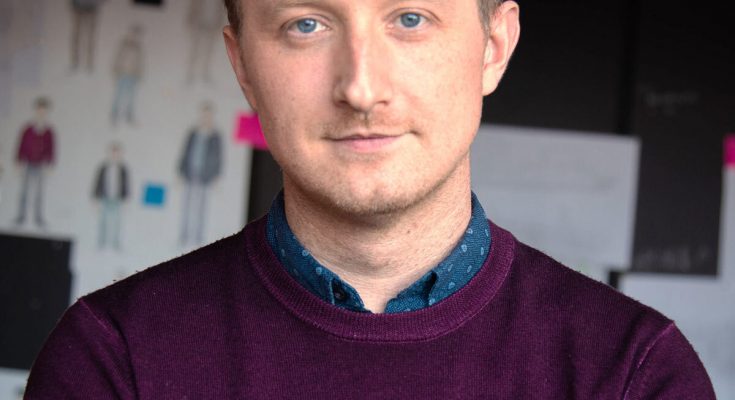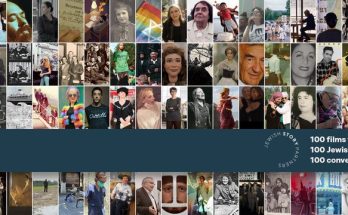CMEDIA: When members of Falun Gong hacked China’s state TV in 2002 to expose brutal repression many lives changed forever. Now award-winning filmmaker Jason Loftus and comic book artist Daxiong tell the story of what happened then. J Loftus’s animated documentary film ‘Eternal Spring’ recently won the Hot Docs Audience Award for best film and the Rogers Audience Award for best Canadian film! The film on Falun Gong’s 2002 hijacking of broadcast television stations in Changchun, and China’s continued repression was watched by an audience at the HotDcs Canadian International Documentary Festival in Toronto from April 28 to May 8.
Asha Bajaj from Canadian Media caught up with Jason Loftus.
Excerpts of the interview:
Asha to Jason: Can you tell me the significance of the title of the Documentary?
Jason: Eternal Spring in the first half of the movie is a bit of a giveaway but it is the literal translation of the name of the Changchun city in China. A hint of that is known at the end of the film. But for me, there are a few layers to it, and really struck me with the theme of the film. There are these people who are making a remarkable sacrifice in order to be able to speak the truth in the face of injustice, and from the looks of it, they suffer horribly as a result. There are people who do not survive and there are people who endure torture in prison. It would be easy to look at those circumstances and say maybe it was a mistake or maybe they have taken a wrong decision. It is that kind of a subject that we explore in this film.
But what I really sensed from the participants that we were able to speak with, and the witnesses who knew those others who were involved is that they did not really feel so. You really get a sense of hope despite all of these difficulties in suffering that they have gone through as a result of their actions. And to me, I really wanted to capture that spirit of hope that they possessed regardless of the human rights consequences that we witness on the screen. I felt the name Eternal Spring carries other layers for me as well. Also, if you think of an Arab spring you think of a movement for freedom, because of its eternalism, something that is constantly persisting, and there is a determination to it. There are still aspects to it. There is some symbology in the film with the plum blossom flower. We see prior to it being cracked down on Falun Gong, the people are freely enjoying their practices and their beliefs with spring-like freedom.
Later on, and after they hijack the television in China, there is that brief interruption, that one moment where the communist parties completely control the airways, and the information is completely interrupted. we see that plum blossom. For me when I look at the plum blossom flower, in Chinese poetry it typically blossoms when it is still winter. So. it communicates this idea metaphorically in Chinese poetry that even in the midst of difficulties there is still hope of something better on the horizon, it is like the idea that spring is not far away.
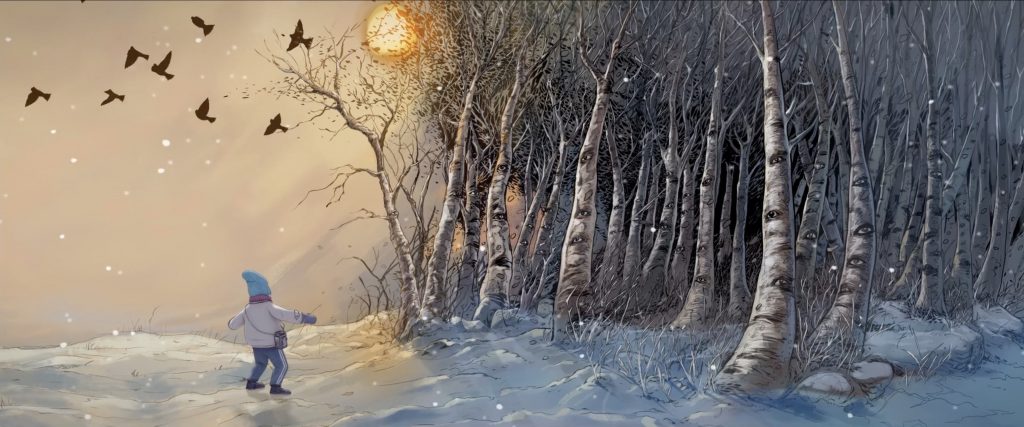
For me, that was the best way to capture the spirits of these individuals whom we were interviewing and the subjects that we were depicting on the screen is that even in the aftermath of this event, persecution still continued, and a lot of people still suffered and will continue to suffer. But from another perspective, potentially there were about 100s of thousands or more Chinese people who saw this broadcast and can never look the same way at the state propaganda that defamed it and maligned this group. Perhaps those people would be less willing to participate in the Government’s crackdown on these people. So even though right now it is very harsh, actions like these will continue to inspire in the direction of a better future.
How were you able to get the footage of Daxiong who had to flee in the wake of police raids in Changchun city and his relocation to North America?
It is a funny story. I was making a Shuyan Saga video game years ago and in this video game, we were using a lot of hand-drawn comic book art. I learned about this artist Daxlong who had come from China and was living in New York he had drawn for Justice League of America and Star Wars. He also worked with Louis Cha, a leading novelist in China. I thought it perfect because of his cultural background and his amazing comic illustration talent. So we worked together and it was wonderful we did 1400 hand-drawn panels for the video game we were making. As we were working together, I learned the story of why he had to leave China. Daxlong comes from the same hometown as my wife and my film-making partner Marsha Yujiao Loftus. But Marsha was the daughter of a mid-level government official in the city. She had no connection with Falun Gong and was unaware of what the people in her own city had endured in order to counter the state narrative and risk persecution against them.
This really struck home that way and for myself, I had the familiarity with Falun Gong and sympathy for the human rights situation. So, I think collectively just hearing the story that has fallen into our laps, inspired us to carry this further. Just seeing how Daxlong drew and how evocative his illustrations were, we felt it would be a really unique opportunity to explore this story by bringing to life his illustrations in animations. to recreate the events that he was depicting.
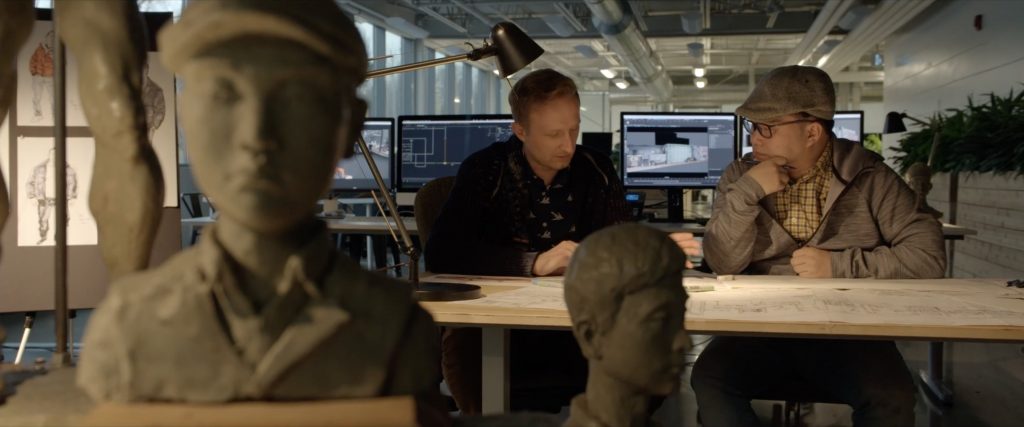
What challenges did you face in the production of this film when your business partners at Tencent were forced to cut ties with your company after being approached by the Chinese authorities?
You hear about these stories of Western media companies being concerned about upsetting China. A lot of that is seen in the films with all of the major studios doing so much business there. Being aware of this, when you tackle a story like this you feel you have to go into where there might be repercussions and where you might be upsetting the authorities. But when it really happens, it kind of hits home, and the video game that I mentioned I was working on with Daxlong was to be published by Tencent, which is a large media company in China and one of the major players in the gaming world Internationally actually. Just in the midst of our game being launched, which had already been approved by the censorship officials in two different offices of two different ministries of the Chinese government.
The game itself was fine, it got the approval and Tencent was behind it, and they were featuring it on six different home pages. It was a great launch and was looking very promising and then all of a sudden, the game disappears and we were told by our representatives that they were approached by the Chinese government and were told that they cut ties with my company. We were asked if this was something we were doing that is not aligned with the Chinese government’s direction. At the same time the public security bureau officers in Northeast China where my wife’s family is began contacting my wife’s family members and were warning them and quoting that they knew what we were up to overseas. I just took it as a sort of a veiled threat.
So, it really hit home at that point that there are repercussions for real. But when I look at these characters that we were meeting coming out of China, and some of them who could not come out of China, and what they had endured just to be able to speak the truth in the face of injustice and to be able to tell their stories. I felt that regardless of these kinds of business risks or the pressures that might be implied there we still have to use the freedom that we have to shine the light on the stories and to be able to give a voice to those who are having difficulties in speaking for themselves.
What was the repercussion of a group of Chinese activists who planned to execute a bold and perilous plan to hack into state television?
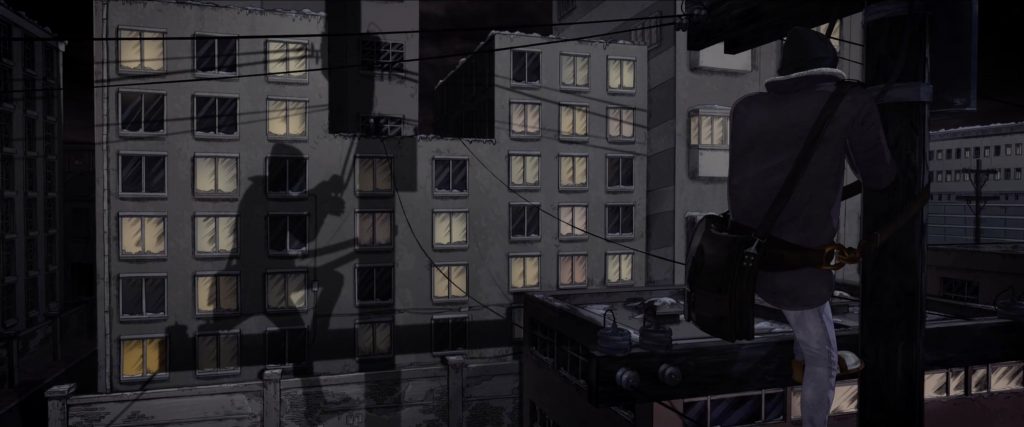
Human rights groups at that time suggested that potentially thousands of people had been arrested in the
The Human rights groups at that time suggested that potentially thousands of people had been arrested in the aftermath. Certainly, that is the impression we got while speaking with witnesses, about widespread police raids and operations across the city, essentially marshal law. So many people are being arrested and apparently without having any involvement in the event itself but perhaps being sympathizing or simply for having some loose connections. It was much more important. It seems the authorities made sure that they got everyone having been involved or sympathetic in any way to make sure that they could get the right person. That sort of the testimony that we were hearing from the witnesses. The repercussions are very severe. Some of the people that were not involved in hijacking the TV effort were tortured and some did not survive. But without giving away too many details for those who had not seen the film, it was extremely severe to bear the consequences after the act.
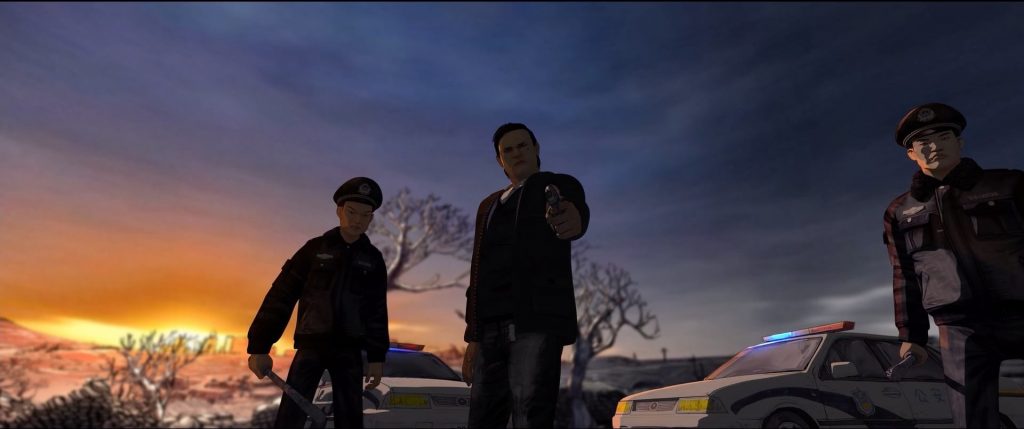
Please highlight the use of animations in the film, some parts of which you had already highlighted.
The use of animation is powerful in documentaries. For the animation to be quite powerful, there is a subjective layer to the animation. Obviously for the documentaries that are something to be aware of. But I felt there was a very unique opportunity how to approach animation in this particular film. That is because think animation has a lot of power to be used in documentaries and actually even with very serious subjects. For the animation to be quite powerful, there is a subjective layer to it obviously. So as a documentarian, that is something to be aware of. But I felt there was a very unique opportunity in how we could approach animation in this film in particular. And that is because it was not purely a stylistic choice for the filmmaker who wanted to use it for recreation, it was something that was closely intertwined with the story itself and with the main character of Daxlong, who himself is an artist.
And by having about a third of the film being in live-action, it allowed us to constantly remind people that 1) these are real people and these are real stories, and we can see the way of these events in the face of those who are describing them who are going through so that we can see the real-life consequences of this. And it ground the story first and foremost in the real world and in a documentary. So that is that benefit. But also, there is this opportunity to see the power of art and the illustration to help us gain an understanding of events and to help us face difficult past events and trauma and bring some kind of healing and catharsis. I think we see that through Daxlong’s journey because he begins as someone who has some mixed feelings around this event and obviously it impacted his life severely.
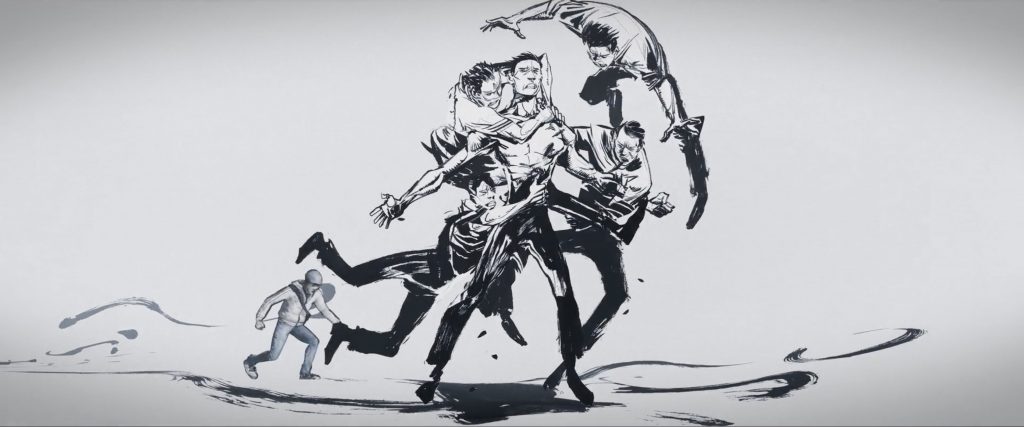
We see in his drawing, the nostalgia and the loss and longing he has for his hometown, and the memories of his youth. We also see the trauma that he carries from his own interactions with the police and having been detained and abused with the authorities in the past. We see all these as he comes out, and we come to appreciate the very bold actions of these individuals who sacrificed to be able to counter the state narrative. Seeing the art as almost a character in the film was very interesting and allows us to pull back to the current. So, it is no longer a decision by the director to use animation, we are seeing someone draw in real-time and see how art helped him to deal with his past.
6. Outside China, the plight of Falun Gong is regarded as an issue and is not often regarded as news. Inside China, the story is highly censored. Secondly. the same tactics and issues can be seen with other groups in China. How does this story serve to shed light on broader issues?
This is what happens with human rights concerns in general and I think a lot of it is what we see in Ukraine. The news is horrific, but it has been going on and it continues to go on. And it is very difficult for us to maintain attention and focus on those things because there is something that sets in a bit of compassion fatigue. Also, there are some other tragedies that have been going on somewhere else in the world. We have a tendency to focus on something for a period of time. It might earn some of our sympathy and concern, but it is always limited in time and we always move on to something else.
And I think the thing to remember is that even though sometimes it is inevitable and difficult to avoid, it does not mean that the concerns themselves have gone away or that human rights issues do not exist there. I think with this film, I am hoping to remind people that this horrendous persecution against Falun Gong is still continuing today. Even the characters in the film are imprisoned or under house arrest as a result of their belief in Falun Gong. The same is seen in many more people such as in the Olympics in Beijing who were detained because of their belief in Falun Gong. The potential that they might highlight the persecution of many that they had been enduring with the world detention in Beijing resulted in its being rounded up in advance of the Olympics. So, these concerns continue.
Your second point is very valid. Even though it may feel like the Falun Gong story is not a new story for those of us who are familiar with and followed it in the early stage of the crackdown. What we see is that the same tactics are being used, for example, the large-scale arrests and imprisonment, and the incarceration of many Uighur Muslims in the northwest of the country. We also see the tactics to coerce them to abandon their beliefs, tradition, and culture which are very similar to themes that have taken place with Falun Gong. We also see the very quick erosion of freedom in Hongkong and the inability to counter the state narrative increasingly happening there as well. So, we see these concerns and we see what Falun Gong has endured previously and I think, that is an important reminder for us that when we see the human rights issues and how it might feel helpless but at the same time, they do not go away on their own.
So, it is worthy of our attention and concern. It is interesting that we just screened this film in New York at the Human Rights Watch Film Festival, and we had a great response. There was a representative of human rights watch who tweeted out in advance of the screening and she mentioned that the people looking at the very harsh lockdowns happening in China now in wake of Covid 19 see what becomes of Shanghai. Many Westerners who enjoyed that modern China, the kind of economic hub of regime they hoped for had deteriorated and do not see any hope for them because that environment has been lost. Her point was that it has been like that for many Chinese people. They have already endured such kind of authoritarian repression for a very long time and that is only now that is affecting something that you are familiar with and that you enjoyed and now really it hits home.
I think it is important for us to remember it sounds like a creche but if you remember the phrase in the aftermath of World War II is that they came for the gypsies, they came for the Jews, then they came for the communists, and eventually, they are coming for me and no one was left to protest. We have heard it so often that it sounds like a creche but it is true that the regime itself, the party, and the ideology that it operates on does not change. So today it might feel that it does not affect us but if we look at how it is affecting other people, we should remember that unless we are able to speak out and shine a light and do what we can to bring about greater freedom and justice in China it won’t change on its own and eventually that could affect us as well.
#HotDocs; #EternalSpring; #JasonLoftus; #ChinaStateTVHacking; #FalunGong; #Daxlong

